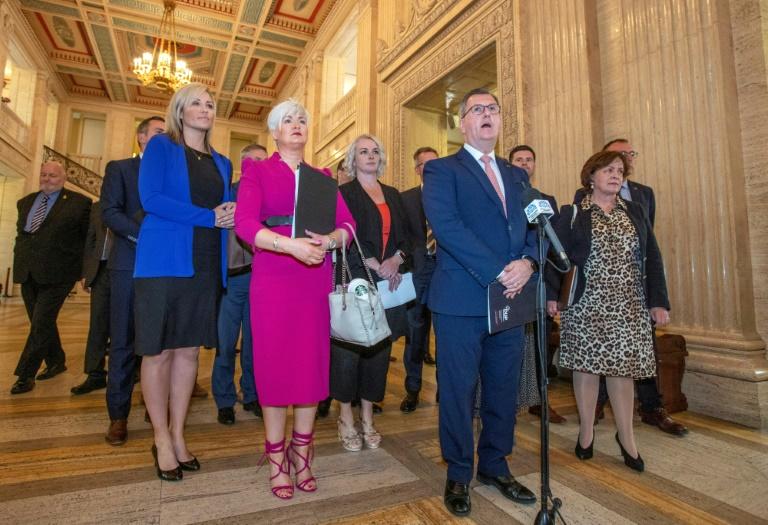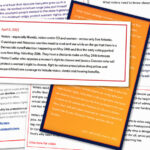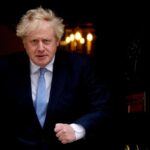
UK Prime Minister Boris Johnson faced demands for action from Northern Irish political parties Monday as he visited the province amid an increasingly bitter dispute over post-Brexit trade which is currently preventing power-sharing there.
Johnson held separate meetings with the leaders of Northern Ireland’s five biggest parties, in a bid to get them to agree to form a new executive nearly two weeks after historic elections there.
In an unprecedented development, the role of first minister is set to be taken by the pro-Irish party Sinn Fein, after it triumphed in the May 5 contests for the Stormont assembly.
However the runners-up, pro-UK Democratic Unionist Party (DUP), has refused to re-enter power-sharing — or even elect a new speaker allowing the assembly to sit — until Northern Ireland’s contentious post-Brexit trade rules are overhauled.
Unionist parties argue the so-called “Northern Ireland Protocol”, agreed as part of Britain’s Brexit deal with the European Union, undermines its place within the UK because it mandates checks on goods arriving from England, Scotland and Wales.
Johnson’s government also insists the protocol is threatening the delicate balance of peace in Northern Ireland between the pro-Irish nationalist community and those in favour of continued union with the UK.
It has warned it will trigger Article 16 of the Brexit deal to suspend the agreement, or legislate to eliminate its requirements from UK law, unless the EU agrees to change it.
– ‘Decisive action’ –
Johnson’s motorcade was booed and jeered by dozens of protesters gathered at the gates of Hillsborough Castle, an official government residence in Northern Ireland, as the British leader arrived for his meetings.
The DUP appeared dissatisfied after its talks with Johnson, and showed little sign of heeding his calls beforehand to “get back to work” at Stormont.
“The tabling of legislation is words. What I need is decisive action,” its leader Jeffrey Donaldson said. “We will examine what they do, we will make our own assessments… as to how we respond.”
Meanwhile, Sinn Fein president Mary Lou McDonald described its meeting as “fairly tough” and accused Johnson’s government of “placating the DUP”.
“We have put it to him very directly that the absolute priority is getting government working here in the north,” she said.
“It’s not good enough for anybody, the DUP or the British government, to hold society here to ransom.”
Johnson’s spokesman in response reiterated the UK government’s view that the protocol is adversely impacting businesses in Northern Ireland and that “significant change” is needed to it.
Writing in the Belfast Telegraph ahead of the visit, Johnson urged Northern Ireland’s politicians to restart power-sharing while setting out his views on various aspects of the province’s post-Brexit status.
He said those who wanted to scrap the protocol were “focusing on the wrong thing” but added “there will be a necessity to act” if the EU does not prove more flexible over the arrangements.
“We will set out a more detailed assessment and next steps to parliament in the coming days, once I return from discussions with the local parties,” Johnson said.
Foreign Secretary Liz Truss will address parliament Tuesday “to set out the rationale for our approach”, his spokesman confirmed.
– ‘Rationale’ –
Earlier Monday, Irish foreign minister Simon Coveney warned London against taking unilateral action.
“Northern Ireland is about compromise and trying to find middle-ground positions that everybody can live with, to maintain political stability,” Coveney told journalists in Brussels.
“To act unilaterally to break international law, to not respect the democratic decisions in Northern Ireland would make matters significantly worse, not better, in terms of trying to solve the problems of the protocol.”
“That is the last thing Europe needs right now when we’re working so well together in the face of Russian aggression and responding to the support needed for Ukraine at this time.”
The protocol mandates checks on goods coming to the province from England, Scotland and Wales, to ensure no return of a physical border between Northern Ireland and EU member Ireland to the south.
The elimination of the hard border was a key strand of the 1998 Good Friday Agreement, which ended three decades of sectarian violence in Northern Ireland.
Johnson’s visit coincides with a delegation from the US Congress. The United States was a guarantor of the Good Friday Agreement, and has expressed alarm at the UK’s threats over the protocol.
cjo-jj/lc




